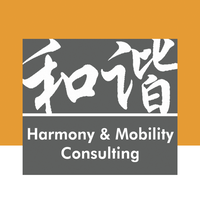Companies news
Harmony & Mobility : Why now you should care about Boomerang expats returning home?

- Resilience & flexibility
- Emotional intelligence
- Problem solving
- Active learning
- Critical thinking
- Leadership
A list of key ingredients for managers to navigate through a storm and tackle ever-changing environments. But these skills are not only useful to face the Covid-19 crisis and transform the business.
They are also among the top 15 skills in demand for 2025, according to the Future of Jobs Survey 2020 from the World Economic Forum.
So, we asked ourselves.
Who have already shown ability to embrace uncertainty, deal with ambiguity and navigate complexity?
Who have stretched their comfort zone? Improved their emotional intelligence? Solved complex problems?
And it just hit us: international employees, of course, or the expats as we often call them!
Whilst working abroad, international employees have to…
- be flexible, adapt
- build resilience
- experience new things, deal with new challenges
- learn fast
- raise awareness on other cultures, on other behaviors, on different ways of working
- develop empathy
- build critical thinking
And on top of that, they were already mastering video conference tools to communicate with their families long before the “Zoom-mania”!
In short, international employees master the soft skills in demand today. And the soft skills in demand for tomorrow.
Returning expats are a great source of insights
Returnees are also a tremendous source of knowledge and experience. They have developed news skills. And often,they are identified as candidates for senior leadership roles.
Many international talents are returning to their home country these days. Some by choice. Others because their mission is not relevant anymore in the new context.
Organizations might want to maximize expats assignments’ return on investment. You would think that employers do not want to lose these talents to the competition. So, there should be repatriation support programs to bring recognition to those talents, to build their loyalty. But also, to contain the reputation of the organization. Send a reassuring message to remaining international employees and to those considering taking on such assignments.
And yet, a third of employees who return from an international assignment ends up leaving the company within 2 years.
Employers spend a lot of resources on finding, motivating and coaching the best candidates for international transfers. But they often fail to support them in their repatriation process.
On the verge of fundamental business changes, returning employees are a fantastic pool of candidates to lead transformation projects.
Today, it is more important than ever to retain these talents.
So how to support all international employees’ returning home these days because of the current economic reality?
By being proactive, communicating early and offering support before they return, in a structured way.
It is with this in mind that we have crafted the Expatriation Boomerang program.
As in Boomerang program, a repatriation support should:
- Push employees to step back and reflect
- Understand returnees’ state of mind and listen to their expectations for the future
- Emphasize the challenges of repatriation
- Help them anticipate the roller coaster of emotions and make sure they are not surprised when the reverse culture shock hit them
- Shed light on returnees’ change of identity after an experience abroad and have them realize they could be out of touch with home-country colleagues
- Support them in defining a clear career path that motivates them, highlighting how their international assignment fit in this career path
- Identify with them projects and assignments that can take advantage of their international experience and expanded knowledge to impact the business
- Make them realize that the return-home assignment might only be a transition step before their dream job
- Highlight the importance of reactivating their network
- Develop a strong support system in both their host and home countries
Thanks to this reflection, international employees will be the pilot of their return.
Returnees will gain clarity, focus, confidence and resilience so when onboarded in their new role they will be more effective, for a quicker impact.
When and where to start?
Ideally, employers should start communicating with their international talents at least 9-6 months before they return home.
But it is never too late to start!





